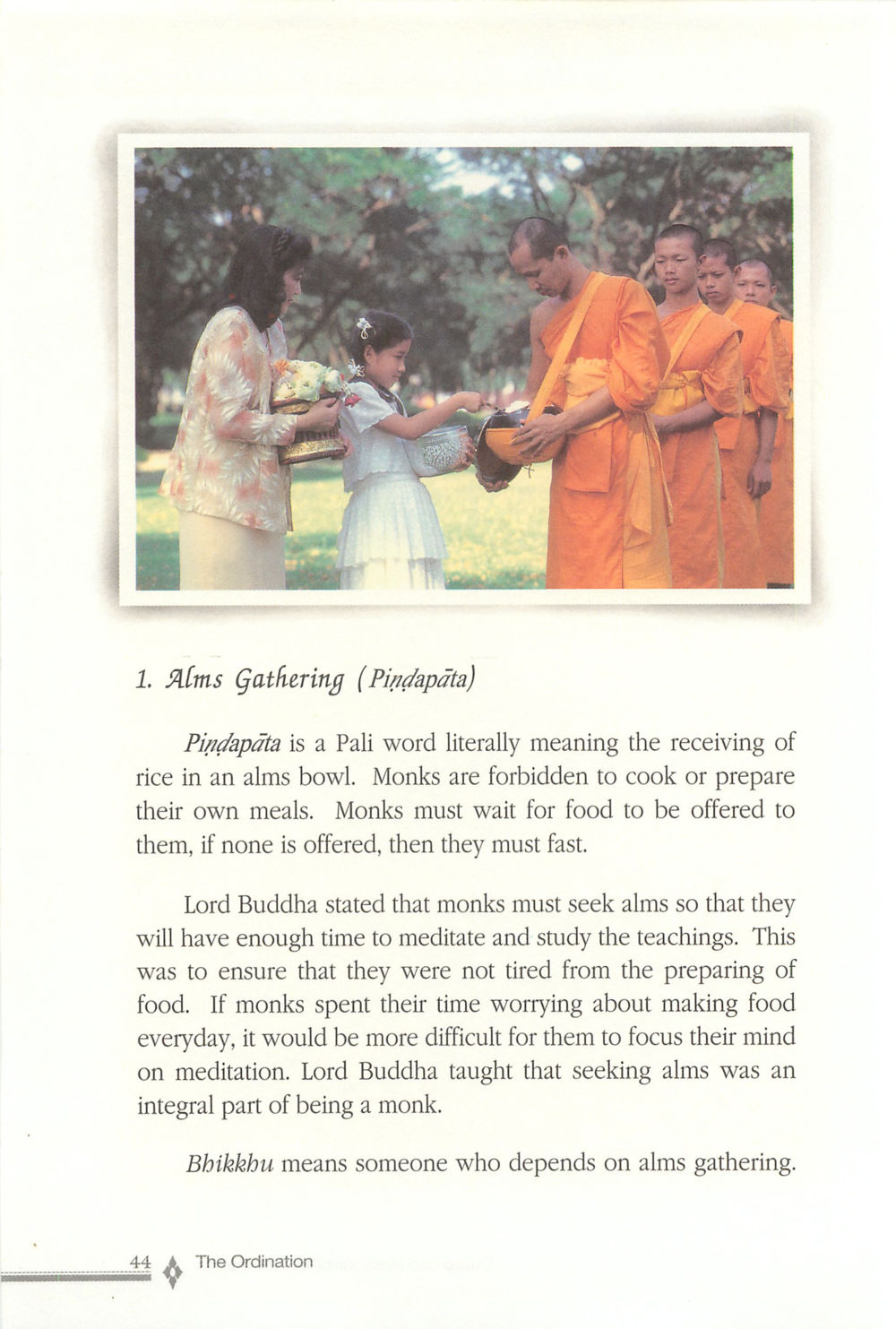Pindapata: The Art of Alms Gathering : หน้า 45/105
The ordination : หน้า 45/105 Explore the significance of Pindapata, the practice of alms gathering for monks in Buddhism, and its relevance to meditation and teachings.
6 ครั้ง

สรุปเนื้อหา
Pindapata, derived from Pali, refers to the practice of monks receiving rice in their alms bowls. Monks are prohibited from cooking, relying instead on the offerings from others. This tradition underscores the importance of freeing monks from food preparation to allow them ample time for meditation and study, as emphasized by Lord Buddha. The practice not only supports their physical needs but also reinforces their spiritual commitment to the principles of Buddhism. Bhikkhu refers to individuals who depend on this almsgiving practice, maintaining a lifestyle focused on spiritual growth and learning.
หัวข้อประเด็น
-Meaning of Pindapata
-Role of monks in Buddhism
-Importance of meditation
-Practice of alms gathering
-Definition of Bhikkhu
ข้อความต้นฉบับในหน้า
Alms Gathering (Pindapata)
Pindapata is a Pali word literally meaning the receiving of rice in an alms bowl. Monks are forbidden to cook or prepare their own meals. Monks must wait for food to be offered to them, if none is offered, then they must fast.
Lord Buddha stated that monks must seek alms so that they will have enough time to meditate and study the teachings. This was to ensure that they were not tired from the preparing of food. If monks spent their time worrying about making food every day, it would be more difficult for them to focus their mind on meditation. Lord Buddha taught that seeking alms was an integral part of being a monk.
Bhikkhu means someone who depends on alms gathering.
หน้าหนังสือทั้งหมด
หนังสือที่เกี่ยวข้อง
Load More









































































































